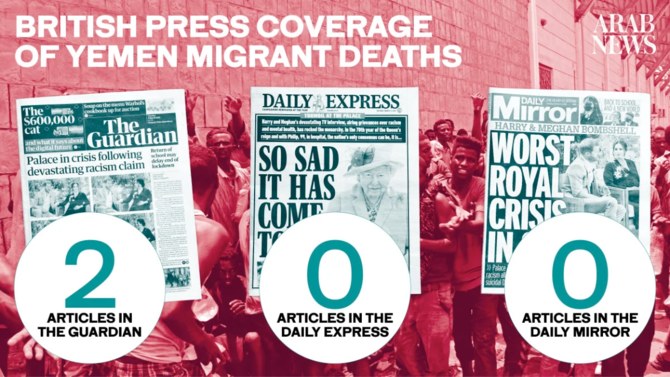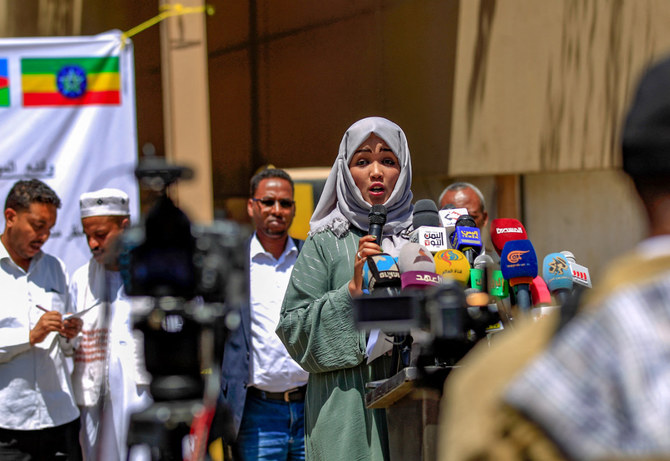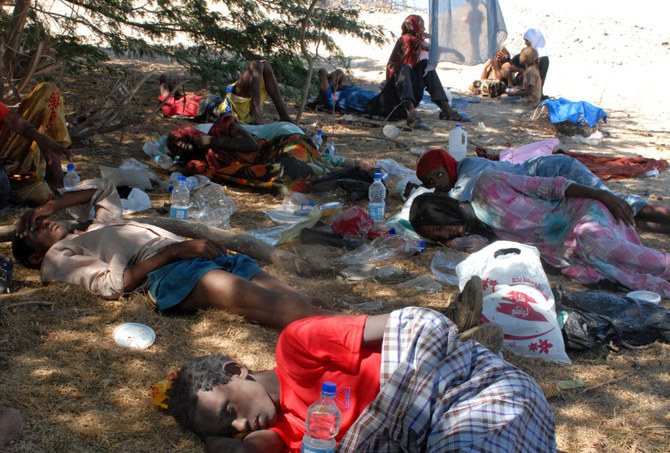LONDON: A quick skim through UK press headlines of the past week shows extensive coverage of such topics as the royal family’s fumbled response to Meghan Markle’s tell-all Oprah interview and Prince Phillip’s discharge from hospital.
Competition for clicks and eyeballs was further provided by Prince Harry’s acceptance of damages from the Mail on Sunday for a report claiming he had turned his back on the Royal Marines after stepping down as a senior royal.
What is conspicuous by its absence from UK news headlines is proportional coverage of a colossal human tragedy in the Middle East: The deaths of scores of African migrants in a blaze in Yemen’s capital Sanaa on March 7.
The fire at the Houthi-run migrant detention center, whose conditions have been compared to a Nazi concentration camp, left many injured besides the dead.
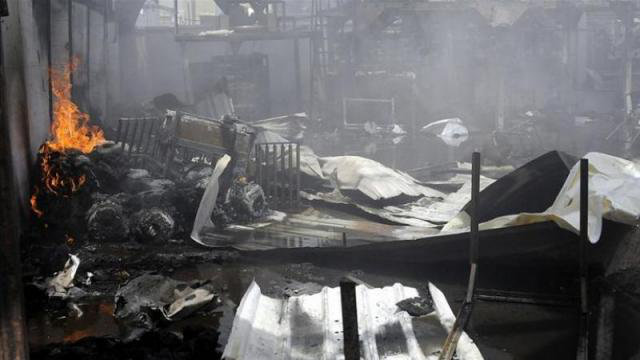
Analysts have shown discrepancies between Western responses to violence at home (such as the BLM movement) and silence on Houthi crimes in Yemen. (Social Media photo)
The official death toll from the blaze is 43, all migrants from Ethiopia, Eritrea, Djibouti, Somalia and Sudan. However, the true number of deaths is thought to be far higher, possibly in the hundreds.
The testimonies of survivors have forced international human rights organizations and diplomats to hold the Iran-backed militia responsible for the deaths.
Going by the logic of the same UK media outlets’ saturation coverage of last year’s Black Lives Matter (BLM) protests and their professed concern for “victims of war in Yemen,” the deaths of so many hapless African migrants should have merited an avalanche of attention. Yet it did not.
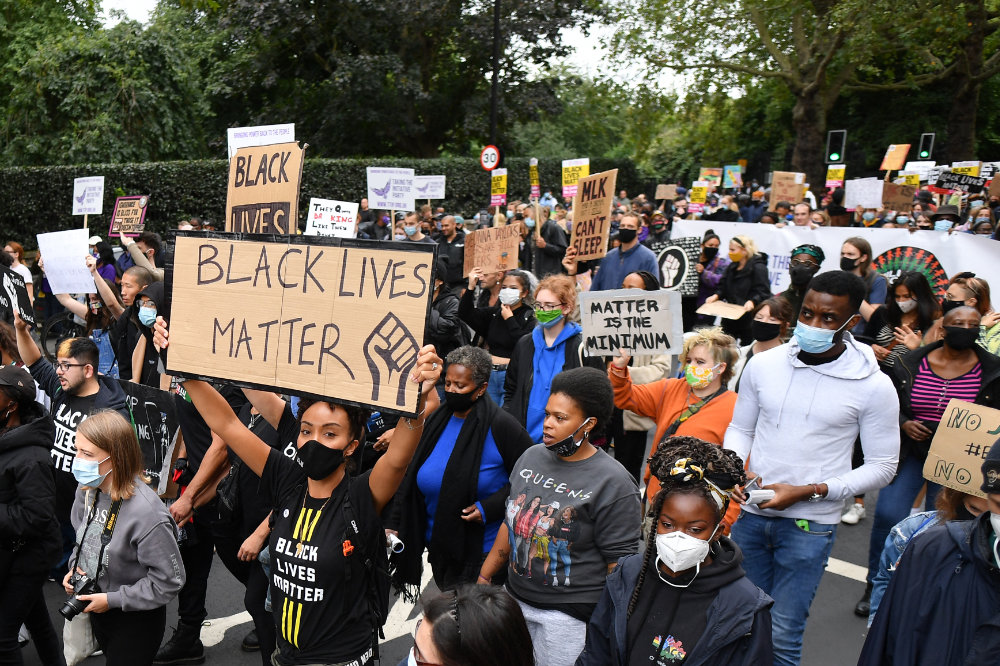
People take part in the inaugural Million People March march against racism in London on August 30, 2020. (AFP file photo)
Even the outrage expressed by senior UN and Human Rights Watch (HRW) officials failed to make a blip on British journalists’ radars, raising questions of double standards.
For one, is Yemen a story worthy of coverage only when the Saudi-led coalition commits a mistake? For another, do some black lives matter more than others in the eyes of the UK media?
This was, after all, a rare case in a Houthi-controlled part of Yemen of the culprits hiding in plain sight.
The Houthis did not initially provide a cause for the fire, mention a protest or give a final casualty toll. But survivors and local rights campaigners said the blaze erupted when guards fired tear gas into a crowded warehouse, trying to end a protest against alleged abuses and ill-treatment at the facility.
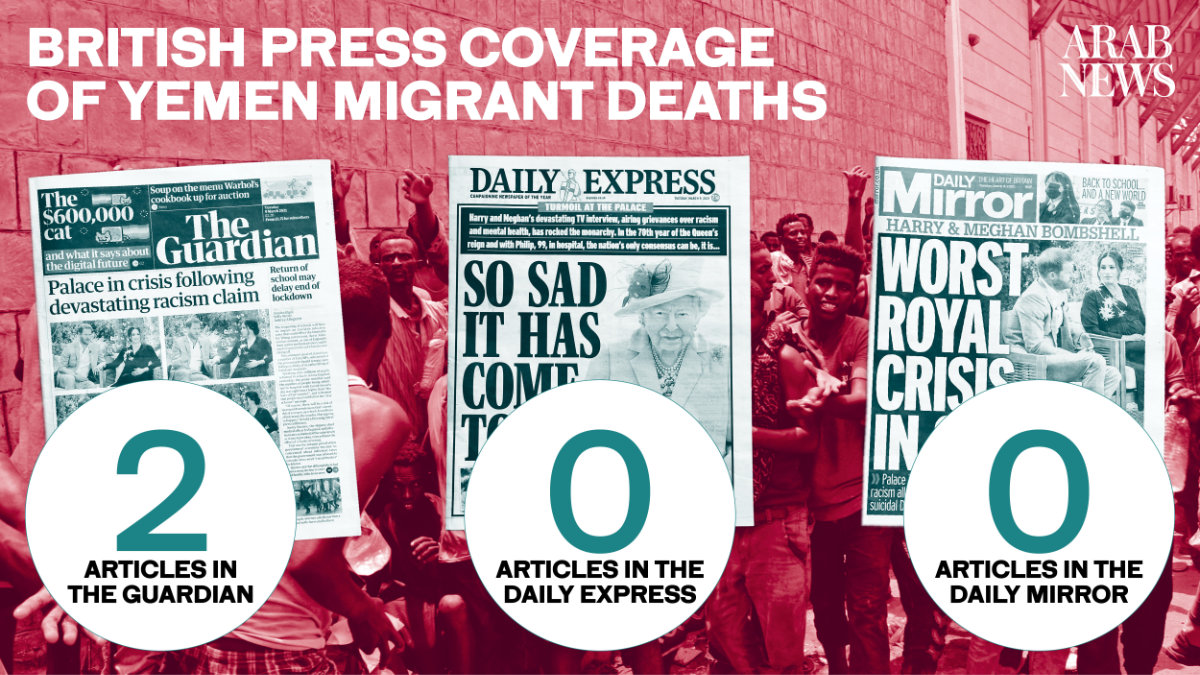
“Like all territory controlled by extremist groups, reporting from Houthi-controlled areas obviously presents extreme risks for Western journalists,” William Neal, a London-based strategic communications consultant, told Arab News.
“But in this specific case, both HRW and the UN had shared evidence of this shocking attack and called for action.”
The BBC and The Independent did publish a story each on the fire the day after it occurred, with the former doing a follow-up story based on the HRW report.
By contrast, The Guardian, a left-leaning UK daily that prides itself on its human rights focus, paid attention to the outrage only when the UN called for the investigation nearly a week later. On Saturday, its website had an AP story on the Houthis’ admission that teargas canisters fired by the guards caused the fire.
Approached by Arab News for an explanation for the newspaper’s scant coverage of the migrants’ deaths, a Guardian News & Media spokesperson said: “The article in question prominently references both the UN call for an inquiry and HRW’s comments.”
The Guardian refused to elaborate on the grounds for not reporting the news of the fire before the UN’s call for an inquiry.
It also would not comment on whether the incident warranted the same in-depth coverage as any comparable atrocity elsewhere in the world.
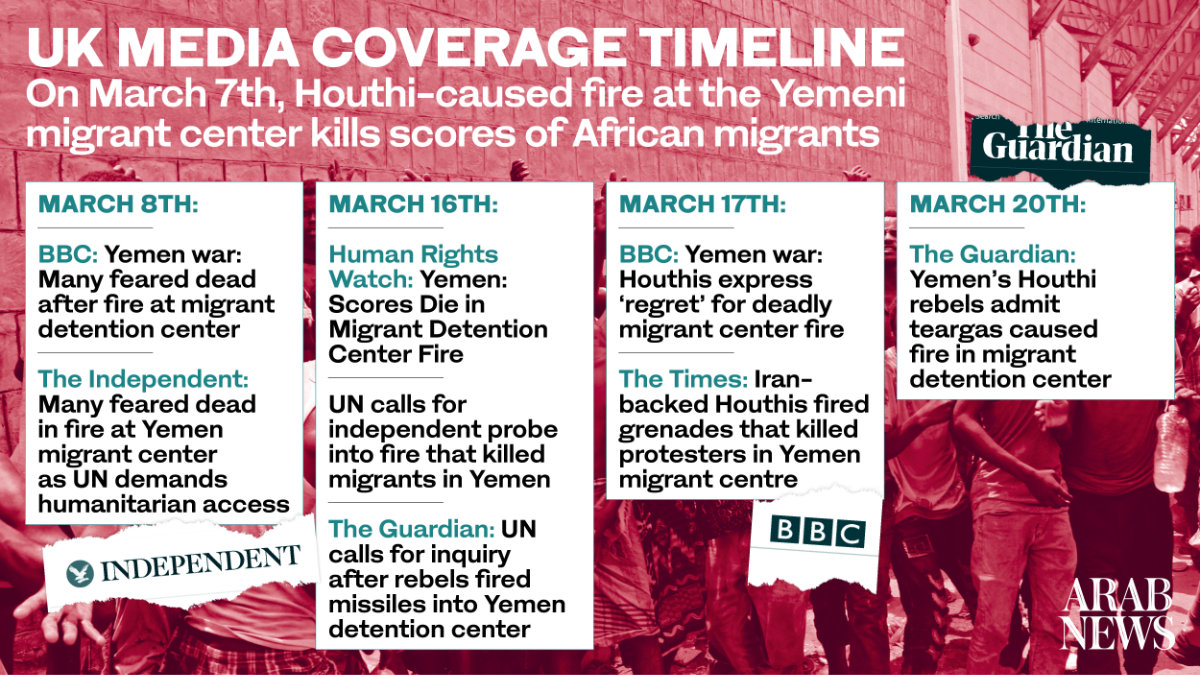
Incidentally, The Times carried its first report on the fire more than 10 days after it occurred, that too only after Arab News pointed out the absence of stories on its website on the topic (the email was sent on March 17; coverage began on March 18).
Out of four media outlets — The Times, BBC, Independent and Telegraph — none responded to multiple requests for comment from Arab News on the reasons behind their meager attention to the story.
How many column inches would have been devoted by the same media outlets to the story had there been just a hint of the Saudi-led coalition’s involvement is anybody’s guess.
Even if the coverage had been proportional to the crime, what would have likely gone unmentioned is that the Houthis overthrew the internationally recognized government of Yemen in 2015 and launched an endless war on civilians in both Yemen and Saudi Arabia; or that the Houthis have long blocked international aid and pushed 24 million Yemenis into dependence on humanitarian assistance.
“Media reporting hasn’t held the Houthis accountable for their actions, and this has meant Western audiences have all too often been served up a one-sided account of a complex conflict,” said Neal.
“It’s hard for most to discern from the coverage that the Houthis are a terrorist group that’s a major threat to the stability of the entire region, and this needs to change.”
Moammar Al-Eryani, Yemen’s minister of information, culture and tourism, echoed the same concerns in exclusive comments to Arab News.
“The campaign being waged by the Houthis since their 2014 coup has seen a large number of war crimes by the militia, which unfortunately haven’t received sufficient coverage, even though they don’t differ at all from the terrorist acts of Al-Qaeda and Daesh,” he said.
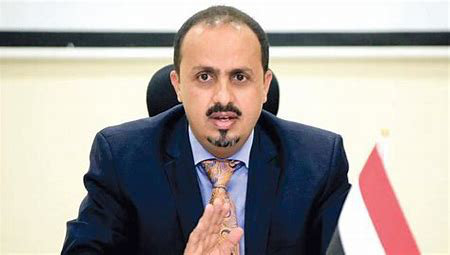
Moammar Al-Eryani, Yemen’s minister of information, culture and tourism. (Social Media photo)
“Western media outlets have failed to expose the crimes of the Houthis, often regarding them as victims, whereas in truth they’re the perpetrators. The woeful coverage by British newspapers of the migrant deaths in the detention center in Sanaa is evidence of their lack of awareness of the crimes of the Houthis over the past several years,” he added.
“We call on Western and Arab media outlets to deal with all Yemeni issues with the same attention, and shed light on all facts and crimes without discrimination.”
Many analysts are also not surprised by the marked contrast between how the mainstream media, human rights organizations and popular social movements respond to BLM-backed causes, and to injustices done to black Africans far away from the media’s gaze.
It has been claimed that the deaths in recent years of a number of unarmed African-American men — George Floyd, Ahmaud Arbery, Trayvon Martin, Michael Brown, Tamir Rice and Eric Garner, to name just six — at the hands of white police officers have galvanized a transatlantic social movement against prejudice and discrimination based on race.
But the British press’ apathy to the plight of African migrants in Yemen has provided ample proof that calling attention to injustices against black Africans does not carry quite the cachet of the advocacy of the rights of African Americans and black Britons.
Asked by Arab News for its views, a spokesperson for the BLM’s UK office said: “Thank you for the invite, but we will decline the opportunity.”
________________
• Tarek Ali Ahmad is the head of Arab News Research & Studies. Twitter: @Tarek_AliAhmad


